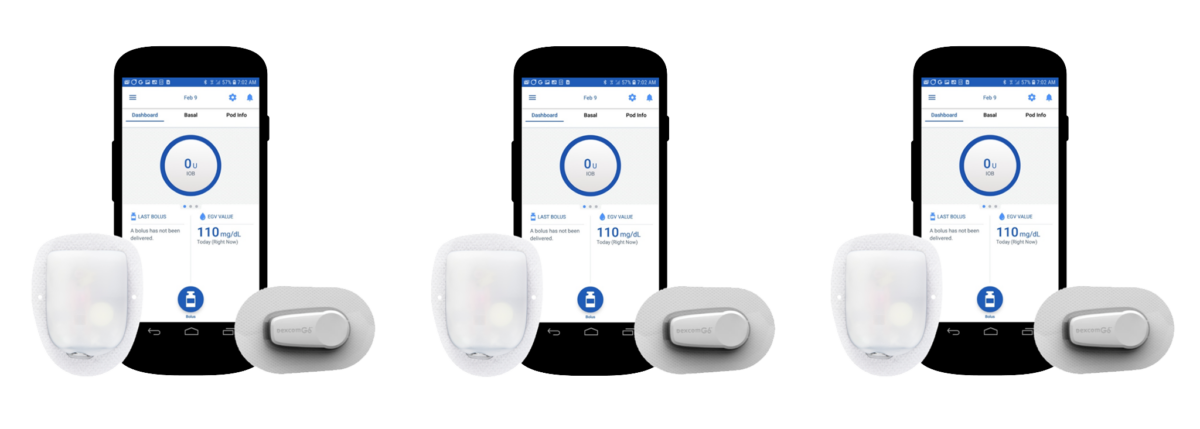High Risk Pregnancy – Mitigating Risks for Type 1 Diabetes + Black Maternal Health Outcomes
Written by: Kayla Hui, MPH
7 minute read
July 15, 2021
In 2020, Ariel Lawrence, a diabetes advocate and creator of Just A Little Suga—a storytelling platform that centers people of color with diabetes—found out that she was pregnant. Although Lawrence was excited, she couldn’t help but feel anxious. As a Black woman living with type 1 diabetes, Lawrence worried about how the intersection of having diabetes and being a Black woman would impact her and her baby.
According to Christopher Nau, MD, a doctor of maternal fetal medicine based in Cleveland, Ohio, timely access to diabetes and maternal health care is crucial, especially for Black women who—due to multiple factors including systemic racism and implicit bias—are three times more likely to die from childbirth compared to white women in the U.S.
“Once I found out that I was pregnant, I was experiencing a lot of anxiety. And although I was working with the care team to make sure that my management was tighter and my blood sugars were in range, the reality was that there were moments where it wasn’t in range, there were high blood sugars and sometimes, there were high blood sugars for extended periods of time,” Lawrence tells Beyond Type 1.
Lawrence’s blood sugar level concerns lingered since getting diagnosed with type 1 when she was in the 10th grade. “In college, there was a nurse who had said to me, type 1 diabetes and pregnancy don’t mix,” Lawrence recalls. “At that point in my diabetes journey, I remember struggling to get my A1c below a 7.2. So for the longest, there was this question of can I actually do what I need to sustain a healthy pregnancy while living with diabetes?”
According to research, Black women are four times more likely to receive zero to five prenatal care visits when compared with white women. In addition to receiving statistically lower levels of care, “Black women are less likely to get into care early in the first trimester, which is important specifically for someone who has diabetes,” Nau says.
One of the contributing factors to poor health outcomes for pregnant Black people is systemic racism. Compared to pregnant white people, pregnant Black people are more likely to experience unfair treatment and discrimination within the healthcare system, such as being spoken to disrespectfully by healthcare personnel, being ignored after expressing fears/concerns and experiencing poor bedside manner.
In addition to systemic racism, implicit bias—attitudes and stereotypes of other groups that manifest in overt and intentional discrimination—hampers maternal health for Black pregnant people. Implicit bias can impact a medical professional’s judgement to provide treatment and care in a timely manner. It can also hinder patient and provider communication.
When racial biases are expressed in a condescending manner, it can decrease the likelihood that patients will feel valued or heard and providers will recommend treatment options for patients.
Research shows that implicit bias is directly correlated with lower quality of care. A 2012 study found that cesarean deliveries—deliveries that can lead to more negative health outcomes for the pregnant individual and baby, including maternal mortality—were more common among Black and Latina women than white women.
From 2007 to 2016, there were 40.8 pregnancy-related deaths for Black women per 100,000 live births, triple the mortality rate compared to white women, who had 12.7 pregnancy-related deaths per 100,000 live births.
“I’m concerned as a Black woman with my own health, and whether or not I’ll live to share the experience of my birth because there have been so many women who unfortunately have passed away,” Lawrence says.
When Black pregnant people with diabetes do not receive timely maternal and diabetes care, Nau says that their blood sugar levels can rise, increasing the risk of miscarriage and birth defects increases. “The risk can be as high as 20 to 25 percent in someone who’s very poorly controlled,” Nau explains.
As a result, fetuses can have birth defects, such as cardiac malformations. Poorly controlled diabetes may also result in increased risk for stillbirth, respiratory distress and jaundice, Nau explains. He adds that babies are at risk of hypoglycemia, also known as low blood sugar, initially after delivery.
When pregnant people have consistently elevated blood glucose levels, it can also increase the chances of having a C-section. When a baby is delivered by a C-section, pregnant people may take longer to recover post childbirth.
Strength Of A Medical and Health Support System
Aware of the maternal health outcomes for Black women, Lawrence hired a doula, which helped ease her anxiety surrounding pregnancy. “I was aware that when it came to Black maternal health outcomes, Black women are more likely to experience a C-section and have complications as a result,” Lawrence says. “To help minimize my anxiety, I decided to find a doula.” For Lawrence, having a doula meant having an advocate and support system.
According to DONA International, doulas offer physical, emotional and partner support throughout the pregnancy, birth and early postpartum period. Research shows that women who use a birth doula are less likely to have a C-section, use pain medication, need pitocin and more likely to rate their childbirth experience positively.
During the birthing process, Lawrence’s doula liaised and communicated between Lawrence and medical professionals to ensure that Lawrence knew what the doctors were doing.
Coupled with a doula, Lawrence also leaned on her therapist for support. “I was afraid that something bad might happen. So, I had a therapist supporting me through that,” Lawrence says.
Improving Maternal Health Outcomes For Black Pregnant People With Diabetes
Alissa Erogbogbo, MD, medical director of operations at Hospitalist Group, says that there are opportunities to improve maternal health outcomes for Black pregnant people with diabetes through legislation. She says that an ideal bill would include postpartum follow up. “Whether it’s a nurse that they follow up with, a phone call to make sure they [pregnant people] are checking their blood sugars, there’s a lot of opportunity to really decrease the maternal mortality rate,” Erobogbo says.
In the U.S, the Medicaid program provides coverage for almost half of all births. Unfortunately, coverage only lasts 60 days postpartum. States have the option to extend Medicaid postpartum coverage for 12 months by applying for a section 1115 waiver. In April 2021, Illinois became the first state to extend Medicaid coverage for up to one full year after pregnancy. Joining Illinois’s postpartum Medicaid expansion are Missouri and Georgia.
However, there is still a long way to go, according to Erogbogbo. A handful of states including Colorado, Texas, Wisconsin and Florida have enacted legislation to seek federal approval of their 1115 waiver, but the majority of states have taken no direction.
“Most states need to follow that bandwagon. Continuity of care helps you understand how your health is progressing, what preventative measures that you can take,” Erogbogbo tells Beyond Type 1.
While postpartum coverage is available in some states, Medicaid program expansion is far from sufficient. To build on current maternal health efforts, Congresswoman Alma Adams, Senator Cory Booker and members of the Black Maternal Health Caucus introduced the Black Maternal Health Momnibus Act of 2021, a bill that would not only expand postpartum coverage for up to 24 months postpartum under the Special Supplemental Nutrition Program for Woman, Infants and Children, but improve maternal health among racial and ethnic groups by addressing the social determinants of health.
If the Momnibus Act is passed, it would implement several actions such as providing funding to community-based organizations that are working to improve the maternal health space, diversifying the perinatal workforce to ensure that pregnant people are receiving culturally sensitive maternity care, improving data collection to better understand the causes of maternal health outcomes and promoting innovative payment models to incentivize high-quality maternal health care and non-clinical perinatal support.
The bill was first introduced to the house on February 8, 2021 and was referred to the subcommittee on Crime, Terrorism and Homeland Security on April 23, 2021. Since the bill’s inception, it has been endorsed by over 240 organizations.
The aforementioned policies are not an end-all solution, but serve as a start to addressing disparate health outcomes for Black pregnant people on the policy level. People can also advocate to improve Black maternal and health conditions by:
- Reaching out to the U.S. House of Representatives or U.S. Senators to voice concerns about Black maternal health or to voice support for the Momnibus Act
- Spreading social media awareness using already-available social media posts
- Following the Black Maternal Health Caucus on Twitter to stay informed
Resources

Author
Kayla Hui, MPH
Kayla Hui is the health reporter for Beyond Type 1 covering diabetes, chronic illnesses and health inequities. She received her Masters in Public Health from the Boston University School of Public Health. Kayla won a Pulitzer Center fellowship and Slants Foundation award in 2020 for her project on the mental health of Chinese immigrant truck drivers. Her published work can be found at Healthline, Verywell Health, Pulitzer Center and more. Outside of work, Kayla enjoys rock climbing, baking and buying plants she doesn’t need. You can follow Kayla on Twitter at @kaylanhui.
Related Resources

Already compatible with Dexcom’s G6 and G7 continuous glucose monitors (CGMs), the Omnipod 5 Automated...
Read more

The younger a person is diagnosed with type 2 diabetes, especially those with obesity, the...
Read more

The Oura Ring, which tracks things like sleep, heart rate, and activity, is joining forces...
Read more

